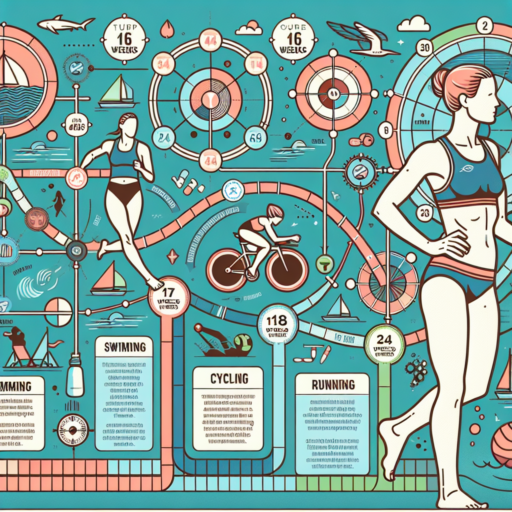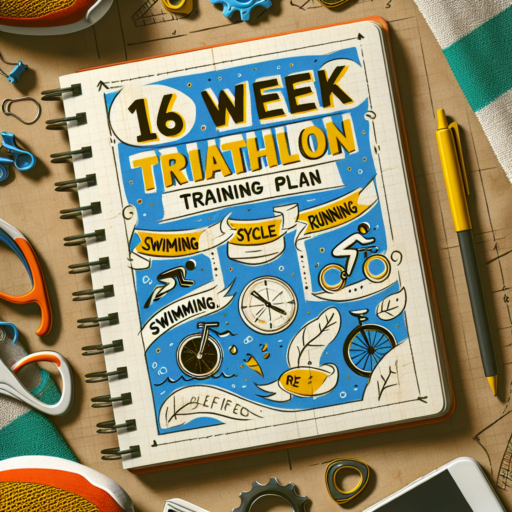How do you structure a 70.3 training plan?
When structuring a 70.3 training plan, the key is to balance endurance, strength, and recovery to ensure peak performance. This Half Ironman distance, consisting of a 1.9km swim, 90km bike, and a 21.1km run, demands a comprehensive approach to training.
Phase 1: Foundation and Endurance Building
Begin your plan by focusing on building a solid aerobic base across all three disciplines. This phase should last about 8-12 weeks, depending on your current fitness level. Emphasize gradually increasing the duration of your swims, rides, and runs, aiming to improve your endurance without pushing into high-intensity zones too frequently. Incorporating one to two strength training sessions per week during this phase can also help improve overall muscular endurance and prevent injuries.
Phase 2: Intensity and Technique
After establishing a strong foundation, shift your focus towards incorporating more intensity in your workouts and refining your technique. This phase, often taking place 5-8 weeks into your training, should mix high-intensity interval training (HIIT) with technique-focused sessions. For swimming, concentrate on drills that enhance efficiency and reduce drag. On the bike, work on increasing your power output and improving pedaling technique. For the run, focus on speed work and maintaining form during fatigue. This is also an excellent time to include brick sessions, combining two disciplines back-to-back to adapt to the transition periods.
Phase 3: Race Specific Training
In the final weeks leading up to the race, your training should become highly focused on simulating race conditions. This involves practicing nutrition strategy, pacing, and transitions. Long training days should replicate the race’s intensity and sequence, allowing you to fine-tune your strategy and mental preparedness. During this phase, tapering becomes crucial. Gradually reduce volume to ensure your body is rested and ready for race day, while maintaining some intensity to keep your fitness sharp.
Each phase of your 70.3 training plan is crucial for arriving at the starting line ready to achieve your personal best. Remember, listening to your body and adjusting for rest and recovery is just as important as following the structured workouts.
No se han encontrado productos.
Is 3 months enough to train for half Ironman?
Deciding whether 3 months is enough to train for a half Ironman largely depends on your current fitness level, experience, and commitment to the training process. A half Ironman demands a blend of endurance, strength, and strategy, covering a 1.9 km swim, 90 km bike ride, and a 21.1 km run. It’s a formidable challenge that requires a well-structured training plan.
Assessing Your Current Fitness Level
Understanding your starting point is crucial. For beginners, jumping into half Ironman training with only 3 months to prepare might seem ambitious. Individuals with a solid foundation in swimming, cycling, or long-distance running might find it more feasible, yet it’s essential to consider the integration of all three disciplines over the training period.
Building a Structured Training Plan
A comprehensive training plan should encompass progressive overload, recovery, nutrition, and race-day strategy. In a condensed 3-month timeframe, every training session counts, necessitating a balance between intensity and rest to avoid injury. Emphasizing quality over quantity in workouts can be a vital strategy to maximize limited preparation time.
Can I train for a 70.3 in 8 weeks?
Embarking on the journey to prepare for a 70.3 triathlon, also known as a Half Ironman, is a commendable ambition. This event, encompassing a 1.2-mile swim, a 56-mile bike ride, followed by a 13.1-mile run, tests endurance, strength, and dedication. The question of whether one can adequately train for such a formidable challenge in eight weeks is valid and warrants a thoughtful exploration.
Firstly, assessing your current fitness level is paramount. For individuals already maintaining a high level of fitness—perhaps regularly engaging in two of the three disciplines—a more intensive 8-week training program could be feasible. However, this doesn’t downplay the immense effort and commitment required. Training for a 70.3 involves not just physical preparation but also mental, nutritional, and recovery strategies that must be meticulously planned and executed.
Training Plan Structure is key. A well-structured training plan that efficiently uses the eight weeks is crucial. Such a plan should emphasize:
- Building endurance gradually to prevent injuries.
- Incorporating brick workouts to get your body accustomed to the transition between different disciplines.
- Adding strength training and flexibility exercises to enhance performance and recovery.
While eight weeks is a shorter timeframe than most traditional 70.3 training plans recommend, with focused effort, proper planning, and disciplined execution, significant progress can be made. It’s essential, though, to listen to your body and consult with a coach to tailor a plan that suits your individual needs and goals.
Can you train for an IRONMAN 70.3 in 12 weeks?
Embarking on the journey to compete in an IRONMAN 70.3 is an admirable goal that many athletes aspire to achieve. Typically, it requires a dedicated training plan spread out over several months. However, the question of whether you can sufficiently prepare for such a demanding event in just 12 weeks is a topic of interest for many time-crunched athletes. The answer, while complex, leans towards yes, with several important caveats and considerations.
Setting Realistic Goals
Understanding your current physical fitness level is crucial when aiming to train for an IRONMAN 70.3 in 12 weeks. Individuals with a solid foundation in swimming, biking, and running may find this goal more achievable compared to complete beginners. Setting realistic goals within this compressed timeframe is essential, as it allows for a focused and structured training regimen that prioritizes quality over quantity.
Intensive Training Plan
An intensive, well-structured training plan is non-negotiable for those looking to prepare in just 12 weeks. This plan should include a mix of endurance sessions, high-intensity interval training (HIIT), and adequate recovery periods to prevent overtraining and injuries. Balancing these elements is key to improving your endurance and strength in preparation for the 1.9 km swim, 90 km bike, and 21.1 km run that defines an IRONMAN 70.3 race.




